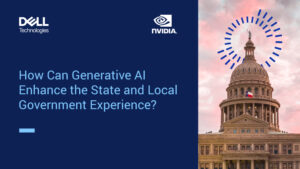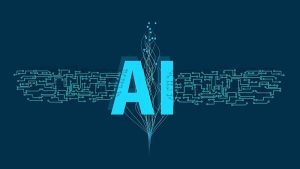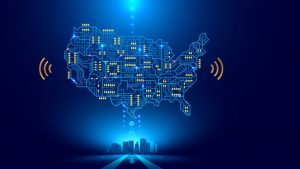State and local governments – facing technology skills gaps and difficulties hiring and retaining talent – can be especially vulnerable to cyber threats. Increasingly complex network infrastructures add new cybersecurity challenges. In a recent interview with MeriTalk, Mike Lauer, national director of public sector at Fortinet and former chief technology architect for the state of Iowa, discusses how platform approaches coupled with artificial intelligence (AI) can give state and local governments the boost they need against threat actors.
Alongside many organizations, state and local governments are exploring Generative AI (GenAI) opportunities to improve efficiency, empower employees, and ultimately deliver exceptional services to citizens.
A new report from the National Association of State Chief Information Officers (NASCIO) and McKinsey & Company highlights the need for state and local governments to take decisive measures to integrate generative AI into their workforce to reap its benefits.
House and Senate committee leaders unveiled a discussion draft of their latest effort to create a national data privacy law via the American Privacy Rights Act of 2024, which notably features provisions that would allow people to opt out of the use of their data for creating algorithms that could impact a host of major life decisions.
Senate Finance Committee leadership released a bipartisan framework of legislation on Feb. 8 that would make key improvements to the nation’s unemployment insurance (UI) system, including the implementation of new technology.
Four state and local government (SLG) agencies have partnered with the General Services Administration (GSA) to start sending customized text messages for application deadlines, interview reminders, fraud reduction, and other critical service updates to people who opt in as well as their own agency staff.
A new report from Stanford University found that in 2022, U.S. governments are doing a lot of talking about AI, but they’re also taking a lot of action. Last year 35 percent of all state-level AI bills were passed into law.
The Government Accountability Office (GAO) released its third report in a series of four that lay out the main cybersecurity areas the Federal government needs to urgently address.
Code for America received two separate investments, totaling $100 million over seven years, to set up its Safety Net Innovation Lab and work with state and local government agencies to modernize their social safety net administration services to make access to government services more equitable, the nonprofit announced April 12.









